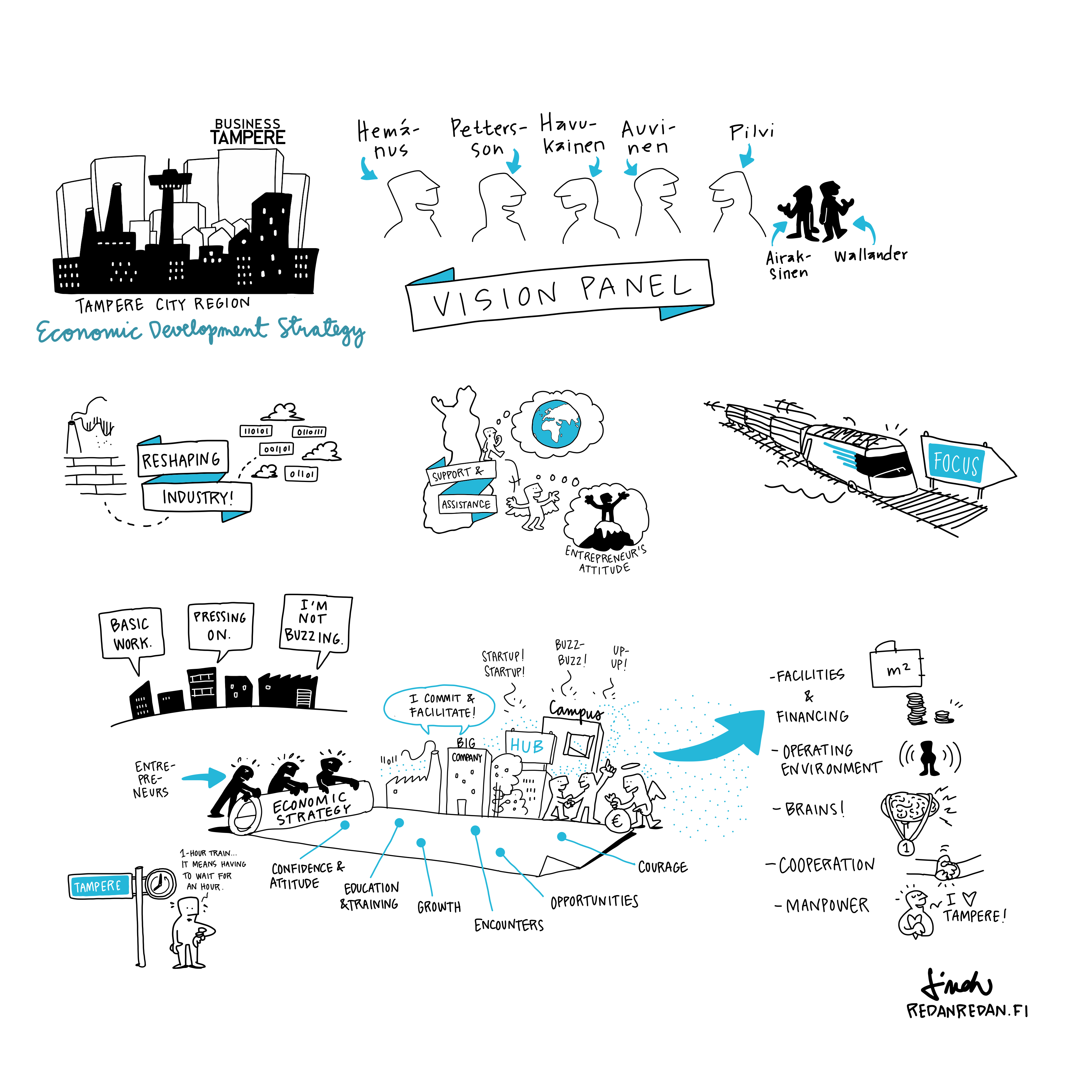The economic strategy of the Tampere city region has been designed with a wide range of stakeholders. The process included two workshops with stakeholders, online surveys, group interviews and workshops for smaller focus groups. In total, more than 200 people participated in the process.
The strategy process started in April 2019. The work was based on the Business Tampere staff day, which discussed the relevance and development needs of the objectives of Creative Zest.
In April and May 2019, seven small group discussions were conducted in the strategy process, each involving 4 to 7 participants. A total of 32 people were interviewed in the strategy process. Invitations to group discussions were sent to representatives of the city, municipalities, lobbying organisations, funders, business networks and companies. The discussions focused on the trends and current situation of business activity in the Tampere region, the vision, the strategic objectives and the mutual roles of the economic operators. Each discussion took 90 minutes. The discussions were partly carried out on site at Business Tampere offices and partly remotely. The discussions were transcribed, and analysis of the interview material highlighted key themes. The summary of the results of the interviews has been used to define visions and objectives and has also been published as a separate report. This strategy report also contains excerpts from the group interviews.

To provide background for the vision workshop in May, an online survey was prepared, focusing on the strengths and weaknesses, vision, areas of concern, strategic objectives and roles of business operators in the city region. The survey was carried out in April and May 2019. Requests to take the survey were sent out with the invitation to the vision workshop. In total, 64 respondents took the survey before 24 May. The results were analysed using frequency distribution, and open answers were compiled and analysed through content analysis. The online survey results were used as material for the vision workshop.
Alongside the empirical work phases, the Sente research team of Tampere University conducted current situation analysis and retrospective impact evaluation.
The first vision workshop was held on 28 May with 94 participants. Background was provided for the workshop with introductions and panel discussions (see Figure 15). The vision and objective concepts defined during earlier work stages were voted on in the workshop, and their content was discussed in small groups. The materials, list of participants and voting results of the workshop were put together to serve as materials for strategy work.
In June, an external management team comprised of the business development directors of Business Tampere’s shareholder municipalities discussed the results of the strategy process and success factors critical to achieving the vision and objectives at a separate strategy day event. The critical success factors were used to formulate focal points.
Also in June, Business Tampere’s staff day reviewed results of the strategy process (interviews, survey, vision workshop, work of the external management team) and collected the staff’s views regarding the vision and strategic objectives. The principles for achieving the vision, among other things, were discussed at the summer and autumn staff days. (see Figure 16).

In September 2019, another workshop took place which widely engaged stakeholders and went over different roles of various business operators in implementing the strategy and shared policies for steering activities. The workshop focused on opening and honing the activities of key focal points. Business Tampere organised a second staff day event connected to strategy work in September.
Over the course of September, the strategy was finished, ready for comments, and its website (www.businesstampere-f0.seravo.io/elinkeinostrategia), was opened to enable a round of comments on the strategy. In the light of the comments, final editing of the strategy was carried out, and the final strategy was completed in November 2019.